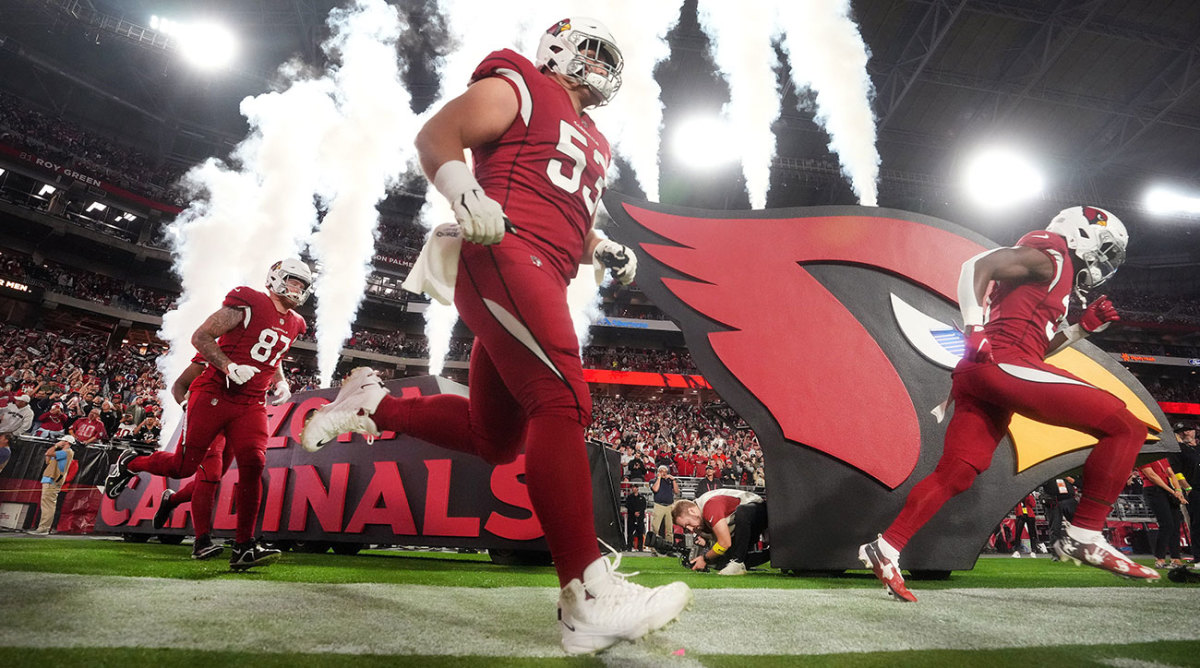NFL Players Should Use Scathing NFLPA Survey When Making Free-Agency Decisions

If you’re a player who bought into the idea that the NFL is colluding against giving Lamar Jackson a fully guaranteed contract, life could feel a little powerless right now.
True or not, there are these seismic moments in the yearly NFL cycle that must make someone feel truly whittled down, completely aware of the breadth and scope of the corporate behemoth they exist within.
And while there is no clear solution, don’t forget that just a week ago, the NFL Players Association dropped into the hands of players and media a powerful tool: a brutally honest survey about the working conditions in the league, which helped peel back the curtain on the idea that every professional football player wakes up each morning and walks into a spa day at Palazzo Fiuggi. It’s not exactly a blowtorch in capable hands, but it’s more than a slingshot.
In the moment, I thought the timing of the survey release was flawed. More people were searching for Anthony Richardson highlight videos at the combine than digging into the hot-tub cleaning process in Los Angeles.
Now I see the brilliance, though. Players have a longer runway with which to utilize the results. While their free-agency deals were secretly getting done in some backroom pub in Indianapolis, their agents had the chance to ask whether they’d have to pay for their new weight-room usage in the offseason as if it were a Life Time Fitness.
In case you missed it, the survey revealed, among other complaints, that some players were deducted salary for boxed meals on the way out the door, some of their families are reduced to nursing their infants during games in public bathrooms and some teams have rats in the showers and laundry hampers. It addressed which coaches keep you trapped in the facility for hours, which ones make the office a pleasant place to work and which team doctors went to medical school with Dr. Nick.
While players can’t as easily collude, they can weaponize the results of this survey to impose a bit of an idiot tax on the owners who think they don’t need to act upon these grievances to continue running their franchises as is. Google “[NFL owner name] + taxes” if you’re bored one day. Few things in life make them more upset than a new one they can’t subvert with a shell corporation based somewhere in the Cayman Islands.
Want me to come to Arizona (or, as it might become known, AriFFFona)? That’ll be an extra $1.5 million. The Commanders? How about another year of guaranteed salary?

Far be it from me to tell a prospective free agent what to do with their money, but imagine if players put the information they collectively assembled to good use and refused to play in a place that received more F-pluses than a KFC in Zagat. Bad owners, bad facilities, bad coaches and bad cafeterias need to be punished. It’s not exactly a pound of flesh, but it’s a few ounces. Maybe that would make the corporate behemoth a little less imposing the next time around. Nick Bosa actually walked up to this point when he told The Athletic that whether a team plays on grass or artificial turf could impact free-agency decisions.
While there are a few select markets where criticism of a team’s historically moribund performance starts at the top, owners are most conveniently able to hide behind the players and coaches they pay for the privilege of taking their arrows. For once, I would love the discussion to be more about how a franchise comes across when they’re trying to acquire good players, and less about how those players perform when they’re placed into a miserable working environment, which inevitably produces more unhappy people and, by domino effect, more stressed coaches who are unable to put those players in a better position.
We’ll get to the big trade coming up here on Talk Radio 999 The Bull, but first: Have we seen the stats on this team chef? Is it true they drafted him out of a Denny’s?
This survey is good specifically because some of the results are embarrassing. The NFL is built on a platform of monetizing and narrativizing success and failure on a massive scale. Rarely are the owners held to the same standard (I know, tell you something you haven’t heard). But now, their own personal flaws, their own oversight, their own version of a fumbled punt in the waning seconds of a divisional game, are pasted all over the internet for people to see.
On the field, such mistakes cost players money. Now, it’s time for the owners to pay up, too.
